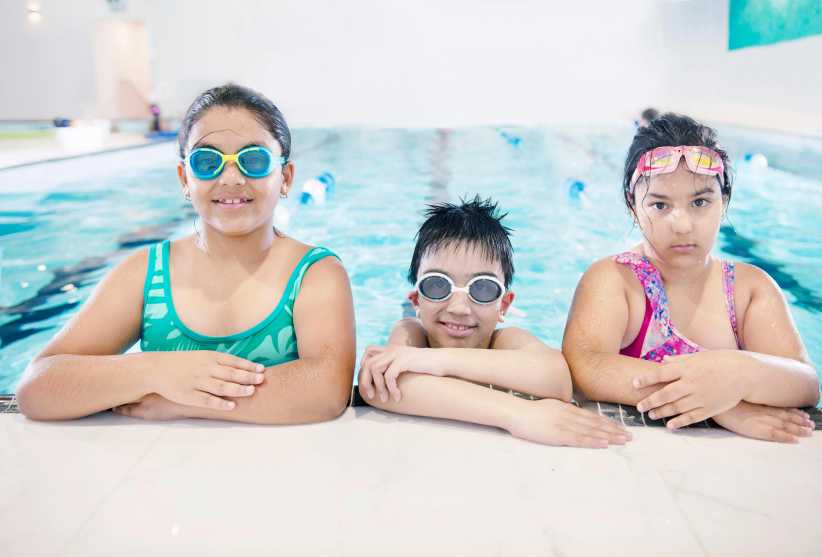One of the most essential and daunting tasks for parents is practicing discipline. Parents of children with special needs have the additional challenge of implementing an appropriate discipline plan that helps their children exercise self-control without overwhelming or shaming them. Clear and consistent rules lead to feelings of safety and security. Successful discipline also promotes positive behavior and contributes to increased self-esteem, independence, respect, and confidence.
Misbehavior is a normal part of every child’s growth and development. Babies act out with temper tantrums when they become more self-sufficient and understand that their actions affect others.
As they grow, children continue to test their limits for many different reasons. They may be hungry, tired, or physically uncomfortable. They may want attention. Their behavior could also reflect the need for control or clearly defined boundaries. It is the parent’s job to figure out what the child needs and respond accordingly.
Disciplining special needs children requires a great deal of patience and practice. Every child is unique, and parents need to experiment with various methods before finding the best fit. Parents know their children better than anyone else and should trust their instincts. Children change over time, so what may have worked well one week may not be effective the next, so it’s important to be flexible.
Parents must learn to read their children’s behavior in order to develop an appropriate behavioral plan. Special needs children require attention in different areas. A majority of the time, acting out in a negative manner is their attempt at communicating a particular need. In a social setting, children may not have the ability to relate appropriately with their peers. Instead of using words to express themselves, children may bite or hit. Parents can model the proper language and behavior to use when approaching a friend. A simple wave or “hello” can be practiced regularly until the child begins to put it into practice on his own. A parent should not apologize for her child’s misbehavior but explain that he is still learning how to ask friends to play.
Empathy plays a key role in discipline, because it helps children feel understood and encourages them to acknowledge their feelings. Figuring out the message behind children’s actions may take time, but once the need is identified, it becomes much easier to deal with the behavior. For example, a child who ignores parental instruction may not be intentionally disobedient. Most special needs children have trouble focusing, especially if visual or auditory distractions are present.
A child’s disability should never be blamed for misbehavior. Special needs children must be held accountable for their actions. They are capable individuals, despite their limitations. While adjustments need to be made to accommodate them in certain areas, it is beneficial for parents to assign developmentally appropriate responsibilities to their children.
Parents who feel their children are too sensitive for discipline are doing them a disservice. A child who does not receive consequences for his actions will likely have diminished feelings of confidence and self-control. A sense of accomplishment will help to boost self-worth and teach children to value themselves and their abilities.
Positive discipline strategies are the most effective behavior management strategies for parents. This approach involves parental modeling, as well as consistency, so that the child learns to integrate and modify his behavior on his own. When a child misbehaves, parents can offer choices instead of common negative commands such as “Don’t” or “Stop.” This not only redirects the child, but gives him more of a sense of control and importance. A child who is throwing toys across the room may be told, “Throwing toys is not OK, but we can throw other things that are safe and will not break. Would you like to stay inside and throw pillows or go outside and throw a ball?” Parents should also remember to acknowledge children when they engage in appropriate behavior. A smile or pat on the back is enough to show approval and encourage more positive actions.
Parents who discipline with love and attention also need to establish more serious consequences if negative behavior escalates or interferes with the safety of the child or others. Clarify rules and set boundaries before a child has the opportunity to challenge expectations. When a child misbehaves, act immediately, but remain calm. The duration and severity of a punishment should relate to the degree of misbehavior.
A time out is one effective way to modify behavior. When acting out, a child should be taken to a quiet, safe place with little or no stimuli. A change of environment will help to refocus and soothe him. Before leaving the child alone, parents must clearly communicate why the child needs a time out. If he is old enough, the child may use the time to reflect on his behavior. The length of the time out should correspond with the child’s developmental age (one minute per year maximum). After the time out period, parents may continue praising positive behavior.
Parents can help to reduce their children’s misbehavior by anticipating difficult moments in the day. Transitions are often difficult for children. The unpredictability of change can make a child feel uneasy, even fearful. Knowing what to expect can help eliminate unnecessary stress. All children crave structure, and knowing what comes next provides comfort. Simply being aware of a daily schedule can help a child adjust between two activities (parents can make a pictorial schedule for young children).
If the day’s routine is atypical, plan to surround the child with as many familiar items (favorite songs, books, toys, etc.) to help him feel as comfortable as possible in unusual circumstances.
Consistency in discipline is critical to a child’s sense of well being. Sticking to rules and doling out consequences for inappropriate behavior teach all children important lessons. They not only learn right and wrong, but practice respect for themselves and others. At the same time, they become more confident, self-aware and responsible when they are held accountable for their actions. Disciplining children is often hard, especially in the heat of the moment, but successful approaches, which focus on positive behavior, reap valuable rewards.
Teacher and freelance writer Laura Varoscak-DeInnocentiis is a is a regular contributor to New York Parenting Media who has won editorial awards from the Parenting Media Association. Varoscak-DeInnocentiis holds master’s degrees in fiction writing, education and psychology. She lives in Bay Ridge, Brooklyn and is the proud mom of two sons, Henry and Charlie. Visit her webpage (www.examiner.com/parenting-in-new-york/laura-varoscak) for more articles on Brooklyn parenting.

























